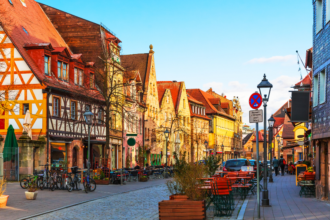How Did the Long-Awaited Arrest End in a Violent Standoff?
Arrested, Apollo Quiboloy, a powerful Filipino preacher sought by authorities in the US and the Philippines for child sex trafficking, ends a two-week-long standoff between police officials and his supporters. The dispute resulted in a raid on Quiboloy’s vast church property in Davao when anti-riot police officials violently attacked hundreds of his followers. Sadly, during the turmoil, one member of a church passed away from a heart attack.
Federal immigration agents in Raleigh launch expanded enforcement
Leading the Kingdom of Jesus Christ (KOJC), Quiboloy says he is the “Appointed Son of God” and has seven followers for the kingdom. He has regularly refuted all accusations despite the weight of the claims against him.
What Are the Charges and Accusations Against Quiboloy?
Charging Quiboloy with sex trafficking of children, fraud, coercion, and bulk cash smuggling in 2021, the US Department of Justice (DOJ) According to the US Federal Bureau of Investigation (FBI), Quiboloy brought women and girls from the Philippines to the US so they would be forced to donate money for a phony organization. Moreover, the FBI said he wanted his female personal assistants—also known as “pastorals”—to have sex with him.
Quiboloy, who was closely associated with former President Rodrigo Duterte, whom he served as a spiritual adviser, rose to national fame despite these severe charges. But his impact was lost when Duterte resigned in June 2022. After Duterte left, Filipino police issued a warrant for Quiboloy’s arrest after charging him with child, sexual, and human trafficking.
How Did the Standoff Lead to Quiboloy's Surrender?
Thousands of police officers, in a tense confrontation with Quiboloy’s supporters, tried to raid his 30-hectare (75-acre) KOJC property in Davao two weeks ago. Quiboloy was reportedly hidden in an underground bunker, according to authorities, and the sound of heartbeats discovered his existence via surveillance equipment. His followers had strengthened the complex, which consists of over forty structures, including a cathedral, a school, and a hangar.
Quiboloy’s attorney denounced the massive police action at this time as a “police garrison” and lamented the “desecration” of one of their cathedrals. Given a 24-hour “ultimatum,” Quiboloy turned himself up calmly on Sunday. “He surrendered because he does not want the lawless violence to continue to happen,” his lawyer said.
Quiboloy and four other arrested persons have been taken to national police headquarters in Manila, where they remain under custody.
What Are the Political Ramifications and Public Statements Related to the Arrest?
Quiboloy said before his detention that the “devil” was behind his legal problems and voiced a wish for the FBI to “not meddle” in his case. According to Philippine President Ferdinand Marcos Jr., the nation is not contemplating extraditing Quiboloy. The confrontation occurred against the public divide between the Marcos and Duterte political dynasties. Though the US DOJ had pursued Quiboloy’s arrest before Duterte’s tenure ended, efforts to capture him became more intense only under Marcos’ rule. While Quiboloy was hiding, Duterte claimed to know his whereabouts but withheld from the police. Vice-President Sara Duterte, Duterte’s daughter, also attacked the cops for what she claimed to be “questionable” force use.
What Is Quiboloy's Background and Influence?
After allegedly hearing God speak to him, “I will use you,” during an event hosted by American evangelist Billy Graham in South Korea in 1973, Quiboloy founded the KOJC in Davao in 1985. Quiboloy has been observed flying on his jet when not in Davao. From a glass stage against expansive images of his lavish hilltop house, sometimes referred to as the “Garden of Eden Restored, he delivers his lectures. His own TV, radio, and social media networks carry these teachings.
Apart from his spiritual pursuits, Quiboloy has used his political clout by supporting candidates for his adherents during elections. This habit is common among religious leaders in the Philippines, where political authority is sometimes built more on patronage than philosophy.








